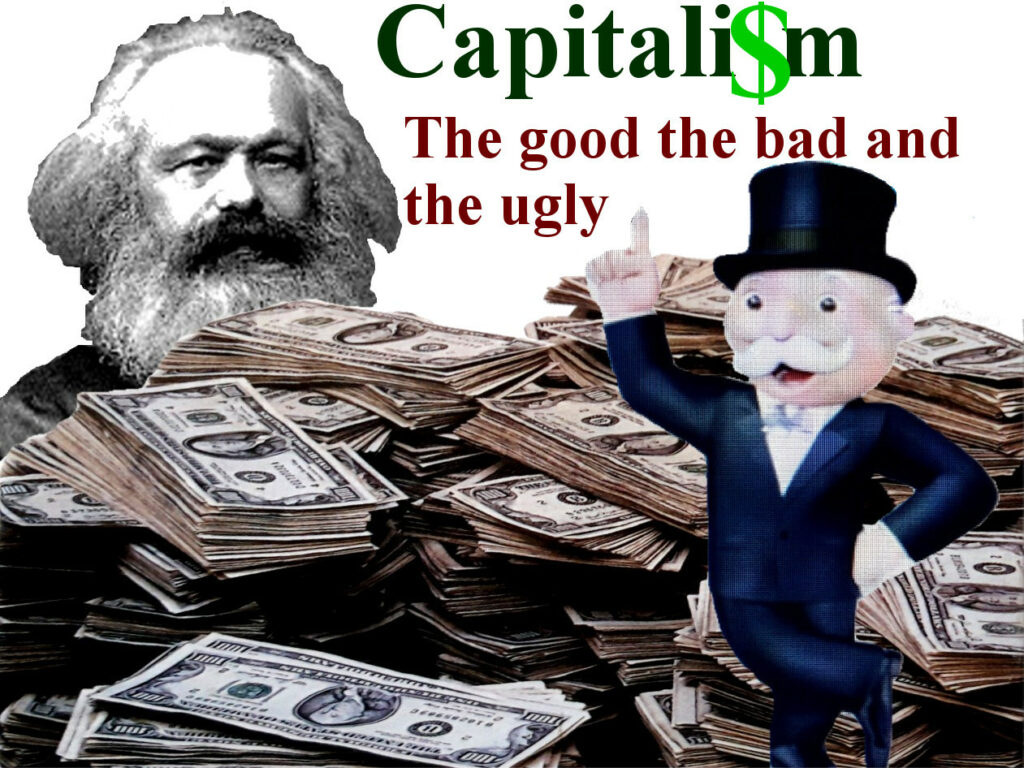
What is Capitalism?
For example…
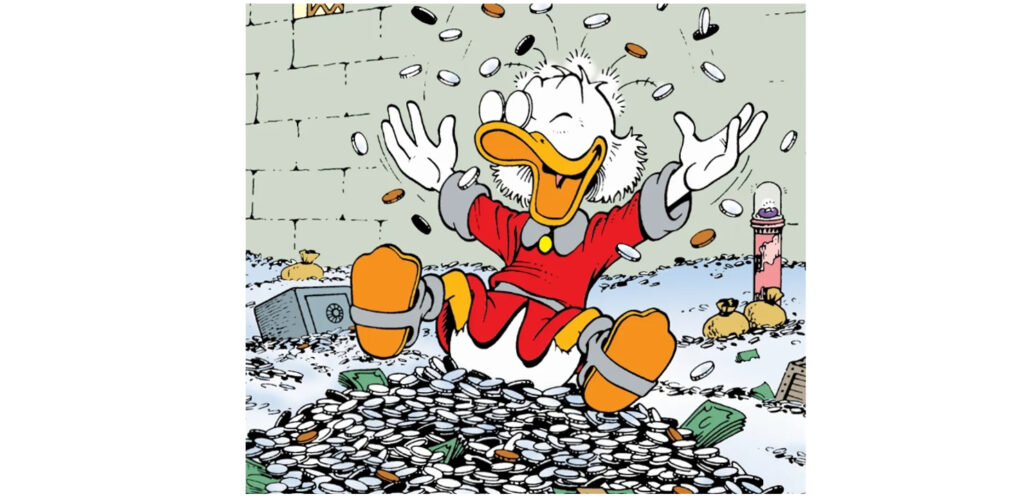
… this? Or…
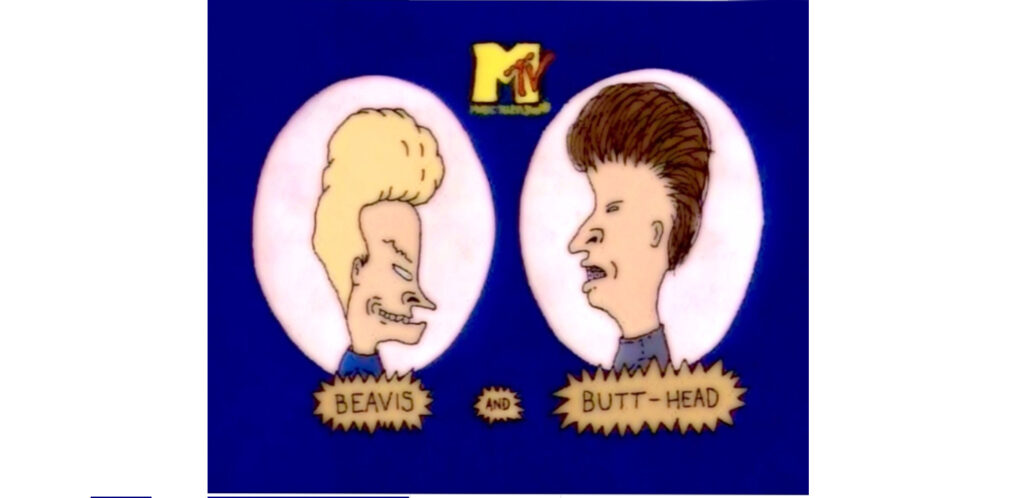
… perhaps this one? Or…
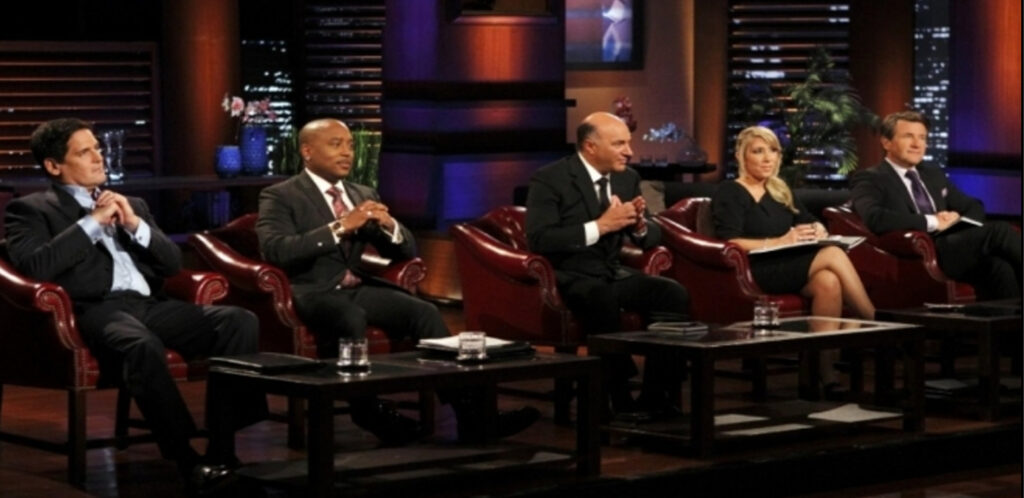
… something like this? Or…

… THIS???
Well, all of them,
… aaand…
… none of them.
In fact, the mere concept of Capitalism didn’t exist before this guy:
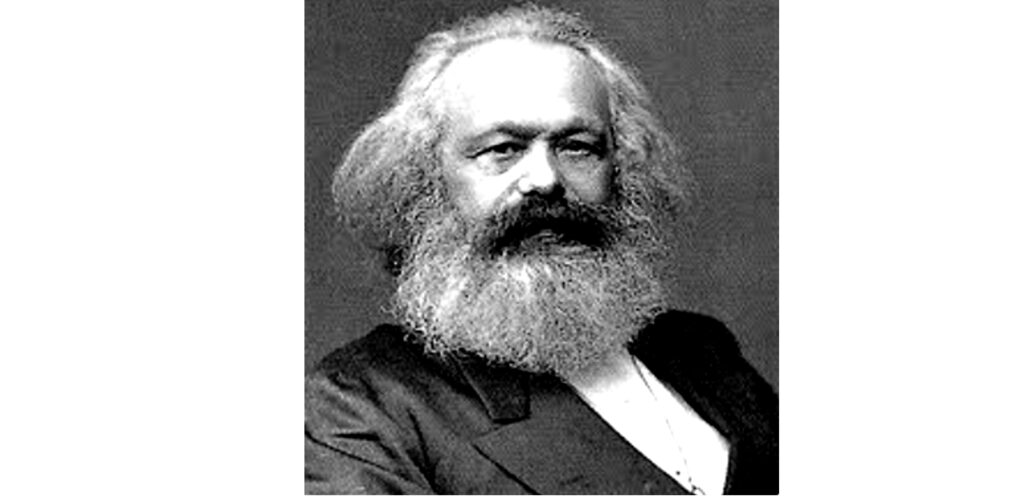
According to Karl Marx who invented the phrase of Capitalism, it’s an economic and political system in which a country’s trade and industry are controlled by private owners for profit, rather than by the state. However the free-market capitalism is only a sort of capitalism, cuz the private owners can be supported by the government, or the government is their customer. In that case we’re not talking about free market economy, but cronyism or oligarchy, which is another sort of Capitalism.
Unlike the free market Capitalism in crony Capitalism not the competitiveness that matters but status and acquaintance. This is kinda meritocracy or nepotism.
In reality there’s no such economic system as Capitalism. The conception of Capitalism is a cliché, which was invented by Marx about accumulating wealth, and exploiting workers. Thus the phrase of Capitalism can be meant in negative terms only, or sarcastic. Since this phrase had been invented by the enemy of the phrase, it can be meant only one way, negative way.
There are three economic systems:
- Free market economy
- Cronyism, fascism, or oligarchy
- Communism
All political and economic systems are built around accumulating capital and exploiting workers, including the communism, moreover especially the communism.
I guess I know why the world tends to drift towards the cronyism or fascism, and the reason is not because the communism is unsustainable for a long run. Or it’s not the only reason. And that also interesting why Mussolini was labeled fascist, despite he was socialist. The answer to this might be because he integrated the big corporations and monopolies into the power, and he bleed the small businesses. This called fascism in the past because the ruling elite didn’t destroy the private sector entirely, like in a communist Russia. Instead of nationalisation in mass scale, they privatized a portion of power, faworing big corporations, banks, and oligarchs.
This is exactly what we can observe all around the world today, including China, Russia, EU, Canada, even in USA. But we do not stigmatize it as fascism anymore, rather cronyism, or crony-capitalism. In extreme cases the individual capacity and creativity don’t pay off anymore, because the corporations are kept in monopoly by law. And those who are thinking outside of the box jeopardize the box itself, the bloody nepotistic system.
In fact all accusations on Capitalism have been triggered by cronyism, rather than free market economy or freedom. Because the free market economy doesn’t exist anymore, and won’t as long as there is an official currency in the economy, what has nothing to do with gold standard. The resulting problems cannot be blamed on freedom, as the already dead person cannot be blamed for stink, spreading from his body. Even those countries which are bragging with the most liberated economy system on the score of economic freedom, cannot afford trading with real money, that would be the gold standard in practice.
If we put only two wheels on a four-wheeled vehicle instead of four, we cannot declare that the car is a failed vehicle. But this what exactly happens when we blame Capitalism for too much freedom, over blaming the system for providing not enough freedom to make system work.
As you can see, as I proved there is no absolutely economically free country in the world only relatively. And there’s no accusation on crony-capitalism in reality but there are accusations on relative freedom only. And I want you all to know when you hear accusations on Capitalism, your relative freedom is targeted. Do not be fooled by overused cliché or Marxist jargon such as ‘Capitalism’, when your freedom is at the stake.
It is absolutely true that big corporations buy policymakers, however, this can only happen because we, voters give politicians too much power. If we would not waive your rights, the big corporations would buy politicians in vain, because they wouldn’t have power to abuse power. But again, this accusation can be legitimate only on cronyism, not on freedom.
What they are still accused freedom with, while they mask their true intention with using cliches. Capitalism is unethical for instance because it’s for making profit, not for helping poor. I don’t have clue, how we could help poor if we can’t make profit. Without making profit, there would be no founds available for charity. Of course charity is not a motivation for making profit. Capitalism, on the other hand, is only as unethical as a concrete mixer, or a brick, or a jumbo jet, or the human nature itself.
Many people say that a free market is unethical because it increases social inequalities. Or the invisible hand is wrong. In reality it’s not an invisible hand that is wrong, and not freedom creates inequality, but we have to accept what no one wants to hear, we are unequal creatures by nature. In fact, the lowest social inequality is in the freest countries. And big corporations never can get big without no governmental support. In addition, with no imperial or federal or central government all countries remain very tiny. And the smallest countries are producing the most equal societies. Because they are free.
This argument neutralizes the next accusation on freedom, the mass unemployment. In the smallest and freest societies there’s no such thing as unemployment, especially in mass scale. Even the smallest countries are not going through major economic crisis. Only big government and bureaucracy, and high taxes create unemployment.
What about monopolies?
The question is specifically about the monopoly that has developed in the free market, not what the state keeps in a monopoly position. The latter has nothing to do with the free market, since the state intervened.
Everyone knows the Marxist tale. The big fish eats the small fish, the competition ends, monopoly, the end of the world. This tale is absolute nonsense, yet the vast majority of people believe in it blindly. Even in the US the most believed this tale, and the famous antitrust laws were passed to break up companies that had gained a large share of the market, without government intervention, Standard Oil, AT$T, the most famous examples.
Proponents of the free market, however, have proved that Marxi monopolies do not exist, never existed, and that the whole Marxist argument is based on a false logic.
In fact the free market monopoly is the most effective business model, if it exists.
It is said to be costly in the market. In fact, the bigger a company is, the cheaper it can be and the more profitable it is, except of course, the state monopoly, and those corporation which are kept in monopoly by the state. The antitrust laws prevent big companies from merging together, like Microsoft and Apple in the recent past.
However, if these laws were not in place, these companies could be even cheaper and more efficient by merging. This would not eliminate competition, on the contrary. If the monopoly does not keep prices down, it will lose its monopoly position against those who enter the competition.
Moreover, the existence of free market monopolies is only temporary. The new inventions break monopolies faster than the antitrust laws. When in the XIX. century the telegraph was monopolized, the invention of the telephone put an end to this hegemony. Kodak’s monopoly position has ended with digital technology. And the Nokia was unable to adapt the smartphone conception.
The weird irony that the antitrust laws leave the only harmful monopoly untouched, the state monopoly. Because not a concept of monopoly that causes trouble, but a violent monopoly.
What are the lessons of the 2008 crash?
The cause of the crisis can be traced back to various government decrees. Obviously, the government had no interest in advertising this. When they saw the created bubble, waiting to pop, they wanted to mitigate the upcoming trouble by passing further decrees, which was a dead idea as all government decrees.
In the meantime, the responsibility is being shifted to the banks and Wall Street. The banks have been to blame for rising interest rate which the indebted people could no longer afford. In fact, banks have been obligated by the government to provide low-interest loans to high-risk customers that are not in line with market realities. The repayment of these loans was guaranteed by the government to the banks. However, this is nothing more than deception of the market. Consumption and investment will increase due to low-interest loans, but prices and inflation will also start to rise because of this. The growing demand for low-interest loans is the answer of the market. But with rising prices, the base rate on loans and the repayment of existing creditors cannot be kept low, otherwise banks will run out of money. The FED is forced to raise interest rates. The loan bubble on the market pops.
This credit expansion was also the cause of the 29th economic crisis, which was more devastating because it took place in pseudo goldstandard. Which meant that the exchange rate of the dollar was arbitrarily pegged to gold, so devaluation of the currency was out of the question. This has been abolished for a temporary period. But it was restored in 1944 as a foreign exchange gold standard in Bretton Woods, that lasted until 1971.
According to Friedman the crisis of 29 would not have been as devastating if it had broken out in the age of floating currencies today. Which is true. But that’s also true there was no any significant economic crash had taken place in the real gold standard, before the WWI. This is so typical of government. They promise help and protection from wealth that will never be produced. When the bubble pops they lie, they don’t take responsibility, they blame banks and Capitalists. They promote further regulations as antidote to chaos they created. And the mentality of outraged and betrayed masses is the same, claiming punishment, regulations, and justice. But capitalism has as much role in this as the car has in accident that the irresponsible driver caused.
The President of the Fed at the early 2000s played a major role in the collapse of the real estate market in 2008, Alan Greenspan, and Paul Krugmann the leader of neo Keynesian economics praised this credit expansion in many articles. The prominent figure of the School of Monetary Economics, the great Milton Friedman is also among the biggest culprits, who only postponed the crisis of 70s with four decades, by creating cheap loans, and an illusion of free money.
Please consider what is written above before you question the legitimacy of freedom and liberty. It can be said that there are many kinds of capitalism from free to less free, but there are no many kinds of freedom. The freedom has no degree. And blaming freedom for slavery is the most absurd accusation.
What is the alternative to freedom?
If you interested in this topic in more detail, please visit my previous posts relating to it:
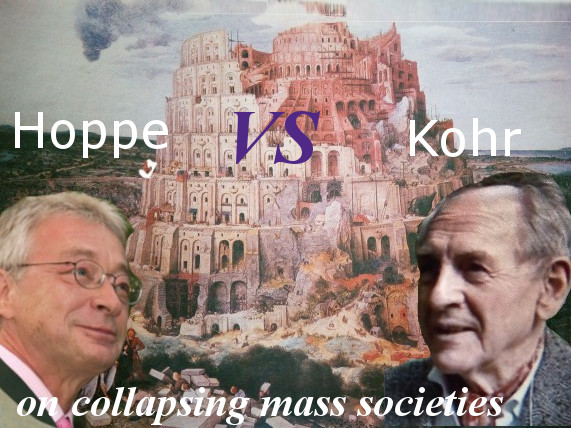
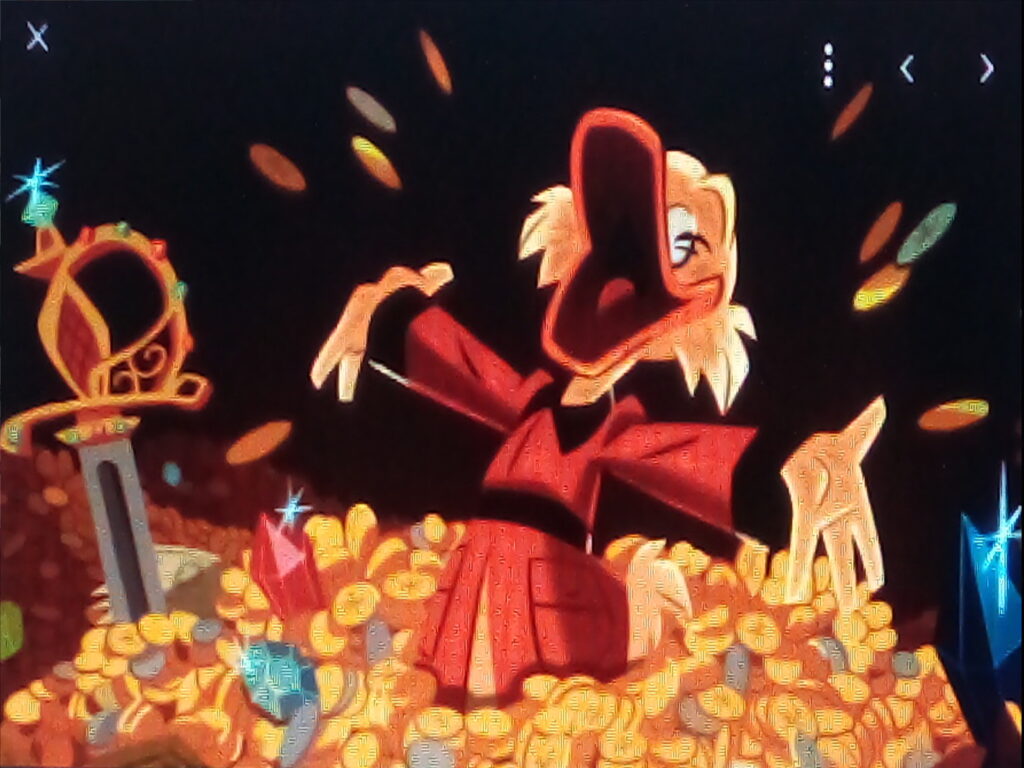
Thanks for reading me!

